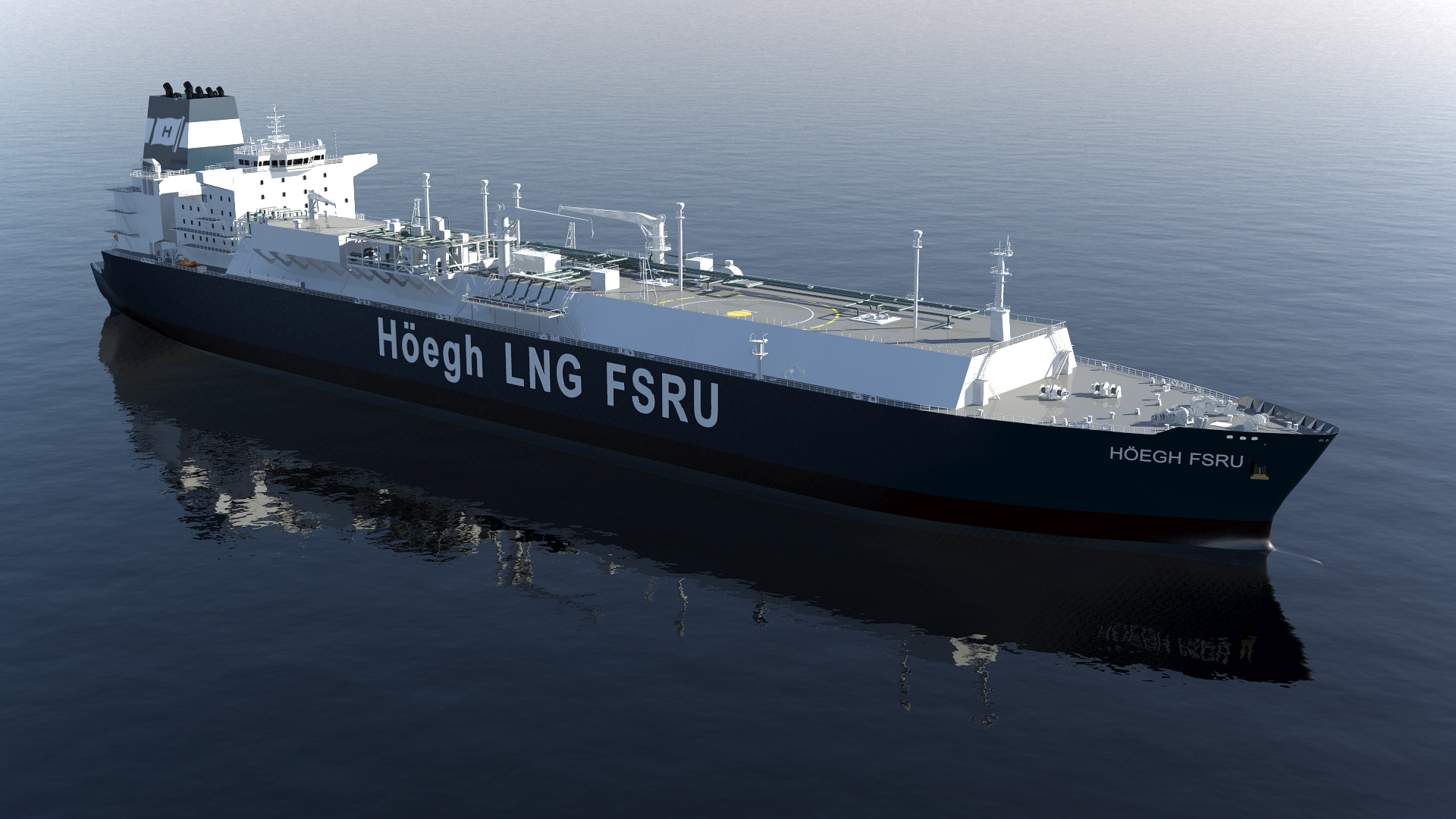Poland is talking about supplying LNG to its neighbors via its FSRU. The Czechs, Slovaks, Romanians and Hungarians are interested, but there is a problem with the latter, because they would like to receive „Russian molecules”.
Poland wants its first FSRU to have a 6.1 bcm annual capacity, but is considering another one with a 4.5 bcm capacity a year annually depending on the demand from the neighbors. „There’s room for two vessels. The first will ensure Poland’s energy security, and the second will support our partners from Central and Eastern Europe without access to the sea,” reminded Anna Łukaszewska-Trzeciakowska, Government Plenipotentiary for Strategic Energy Infrastructure at a meeting with journalists during the Economic Forum in Karpacz.
„It’s about economies of scale, other amounts and the level of talks,” said the minister. „We have asked for the open season to be accelerated for the second ship so that CEOs can already talk about one or two ships depending on the demand,” she explained.
„There had been no clear statements from the southern neighbours before as to whether they were really interested,” she said. „We made trips to all the capitals potentially interested in gas,” said the government plenipotentiary. In this context, the Czech Republic, Slovakia, Hungary and Romania were mentioned.
„It turned out that there was interest. The Slovaks have said they would make an offer. There were so many questions that it was necessary to extend the deadline for giving answers. The response of the market is not at all insignificant,” said minister Trzeciakowska.
„The talks in the Czech Republic were not easy, because they also concerned the Stork II gas pipeline. We were able to combine these two projects. We have communicated that we will be ready for this project if we know that it will not be empty,” said Anna Lukaszewska-Trzeciakowska. „If the Czechs contract enough gas to warrant ordering a vessel, the gas pipe will have to be built,” the minister explained. According to her, the Czech Republic is interested in gas supplies from Poland with the possibility of increasing the capacity of Stork II.
„The Hungarians declare that they want to buy the gas,” said Minister Łukaszewska-Trzeciakowska. „We would very much like to help them, but we do not want to have Russian molecules in the FSRU,” she commented on the talks in Hungary. The Minister recalled that Russia can stop the gas supplies through Ukraine to the Hungarian market. Talks on LNG supplies through Poland are ongoing. Further negotiations with the participation of the Climate Ministry in Budapest will continue on September 6.
The preamble of the documents concluded between Poland and Hungary assumes that the directions of supplies to the Polish FSRU will allow Budapest to diversify gas providers. „If we want to diversify, it should be done for real,” said Anna Łukaszewska-Trzeciakowska in response to a question from BiznesAlert.pl. The European Union systematically reduces the supply of pipeline gas from Russian Gazprom, but increases the volume in liquefied form from Novatek. According to Eurostat, 13 percent of the gas reaching the European Union in the first half of 2023 came from Russia.
„In conversations with us, the Czechs pointed out to us that the costs of regasification in Germany are comparable to ours,” said Anna Łukaszewska-Trzeciakowska. She declared that in the fall a schedule with deliveries to FSRUs will be presented. „We are no longer a back-up to Germany, but a real alternative. We will see how this is reflected in the documents. Demand appears to be higher than expected,” she added. She recalled that German law gives priority to deliveries to Germany in the event of a threat to security of supply.
„We’re in the process of selecting the FSRU. We got a very good response from the market. Many bidders came forward. We will choose the ship on a charter basis. One has to learn to operate it in accordance with the maritime law. In addition to having a regasifying function, it can move around the sea. Lithuanians have already tested the buyout model after the charter,” Gaz-System President Marcin Chludziński explained.
Gaz-System estimates that the key conditions are to be determined at the turn of September and October. The open season is due to end in October and will determine whether one or two units are needed, depending on the needs of the region, based on complex, binding offers. According to the president of Gaz-System, the launch date is 2028. „We also need a breakwater to keep the ship fully operational,” he said. On top of that it is necessary to build almost 300 km of gas pipelines to receive gas.
„The Baltic Pipe and the LNG terminal cover our demand currently. Life teaches us that we need reserves. This is visible in other countries, as well as their conduct, because they reserve more capacity than they need. Sometimes they subsidize these projects, like the German government. We operate differently, based on market procedures. We try to be mindful of security, as well as the market,” said Marcin Chludziński.
The first ship can take up to 56 deliveries, and the second-up to 39. „We’re auctioning off 39 slots at the second ship so there’s no downtime. We want to provide synergy,” explained Gaz-System Vice President Andrzej Kensbok. „We also want to maintain the regasification rate that Orlen has accepted for the first unit. Therefore, we should fill the second unit almost to the brim. Our open season will be conditional. We will be ready to decide on regasification contracts as soon as we have a reservation for all these slots,” explained Andrzej Kensbok.
The attractiveness of the FSRU will depend on, among others, the regasification rate and transmission charges along the route depending on the number of countries along the supply route. Also, the future of deliveries through Ukraine will determine the attractiveness of the route through Poland. „Competition between potential customers is not a problem,” the minister admitted.
Wojciech Jakóbik









